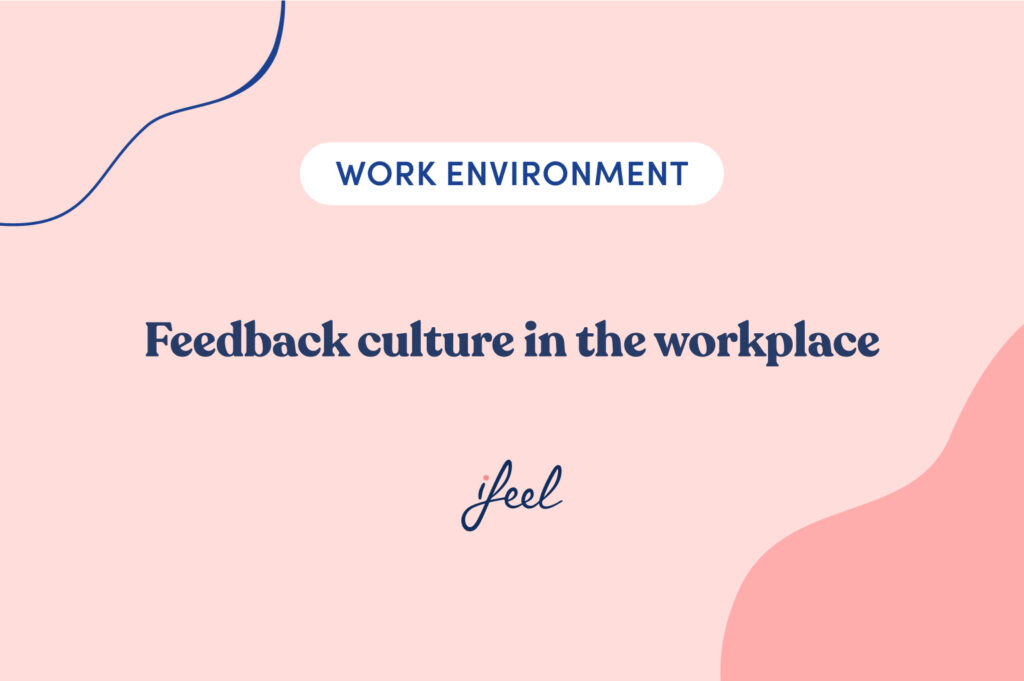Feedback culture in the workplace is key because the reality is that nobody has the perfect formula for getting things right. And that is precisely why we need others to give us constant feedback when something goes wrong, so that we can improve and achieve our goals. In this sense, in business contexts, leaders and managers have the crucial responsibility of guiding their teams to success, establishing a culture of constructive and constant feedback.
This type of culture, in which psychological security prevails, allows for the timely identification and correction of errors, ensuring that all team members move in the same direction and contribute to the achievement of organisational objectives.
By fostering an environment where feedback is an integral part of daily operations, enterprises can optimise their performance, drive innovation and ensure their long-term success.
To help you in this process, ifeel has developed an annual planner for enterprises, which offers a guide to strategies that will help you promote health and productivity throughout the year in your organisation. Download it for free!
The importance of a feedback culture in the workplace
When we talk about a ‘feedback culture’, we are referring to a type of work environment in which constructive feedback is an integral and continuous part of daily work interactions.
In this type of culture, both leaders and employees feel comfortable and empowered to give and receive feedback openly and honestly. Effective feedback goes beyond simple evaluations. It is a continuous process that allows employees to understand their strengths and areas for improvement, fostering an environment of learning and growth for teams.
The importance of building a feedback culture in the workplace lies in the fact that studies show that 45% of workers do not feel that their managers understand their needs, generating dissatisfaction and a lack of purpose in the employee which, in the long run, can result in the resignation of that valuable talent.
A good feedback culture lets employees know that they and their work are valued, reducing staff turnover by up to 24%.
Discover the leading mental well-being solution
Benefits of building a feedback culture in the workplace
A strong feedback culture in the workplace can significantly improve team morale, foster innovation and increase productivity by ensuring that everyone works towards common goals and continuously improves their skills. Let’s take a closer look at the main benefits of this type of work culture:
| Aspect | Importance of feedback in organisations |
|---|---|
| Improvement of performance | Provides valuable information on performance to identify improvements. |
| Promotion of innovation | Fosters the exchange of ideas and creativity, driving innovative solutions. |
| Strengthening of cohesion | Builds healthy working relationships and improves collaboration. |
| Organisational alignment | Facilitates alignment with the organisation’s objectives and values. |
| Development of leadership | Inspires skills of active listening and empathy in leaders. |
| Reduction of staff turnover | Decreases the intention to leave the enterprise by increasing the sense of appreciation. |
| Adds meaning to work | Allows employees to understand the impact of their work and feel valued, increasing satisfaction and meaning in their daily tasks. |
Strategies for fostering a feedback culture in the workplace
Fostering a feedback culture in the workplace requires a strategic and structured approach, especially due to the complexity and diversity of their teams. Below are key steps for implementing this culture effectively:
1. Commitment from leadership
For a feedback culture to thrive, it is essential that the organisation’s leaders actively promote it. This means that leaders should not only participate in ongoing feedback, but also model behaviour by being receptive to the feedback they receive. When employees see that their leaders value and act on feedback, they are more likely to do so themselves.
2. Establish clear communication channels
It is essential to have clear and accessible communication channels to facilitate the exchange of feedback. This can include digital tools, internal communication platforms and regular meetings specifically aimed at feedback. Ensuring that all employees know about and have access to these channels is crucial for effective communication.
3. Offer training in feedback skills
Providing specialised training in how to give and receive feedback constructively is vital. This includes developing skills in assertive communication, empathy and active listening. Workshops and training can help reduce the psychological and emotional barriers that often inhibit honest feedback.
4. Integrate feedback into organisational processes
Incorporating feedback into existing organisational processes, such as performance evaluations, team projects and follow-up meetings, reinforces its importance. Making feedback a routine part of daily operations normalises its use and makes it standard practice.
‘By monitoring engagement and analysing the qualitative and quantitative feedback we receive from our employees, we have been able to adapt our policies to the changing needs and the current level of maturity and resources of the enterprise.’
– Lisa Porres, Chief People Officer at Spotahome, an ifeel partner company.
5. Recognition and appreciation
You should make sure that positive feedback is as frequent as constructive feedback. Recognising achievements motivates employees and reinforces desired behaviour.
6. Create a safe and trusting environment
It is essential to foster an environment where employees feel safe to express their feedback without fear of repercussions. This can be achieved by promoting an organisational value of respect and openness, and by ensuring that any criticism is handled constructively.
At ifeel, we have designed this resource with practical tips that you can implement to foster psychological safety at work.
7. Recognise and celebrate the use of feedback
Publicly applauding and recognising the effective use of feedback motivates employees to continue participating in this process. For example, leaders can thank their team every time they provide feedback in a constructive manner and incentivise it through different channels. Likewise, highlighting examples of how feedback has led to specific improvements or achievements can inspire others to participate actively.
8. Measure and evaluate progress
Finally, it is important to measure the impact of efforts to foster a feedback culture. This can include organisational climate surveys, performance reviews and periodic reviews of feedback processes. Using this data to adjust strategies and address areas for improvement ensures that the feedback culture evolves effectively.
Implementing these steps can help large organisations develop a feedback culture that is inclusive, effective and conducive to collective success.
The Leadership Lens🔎
As a leader, fostering a culture of effective feedback is crucial for the growth and development of your team. The key is to create an environment where feedback is received as a constructive tool, not as personal criticism.
To achieve this, lead by example: provide honest feedback and ask for the same from your collaborators, showing openness and willingness to change. Cultivating this practice not only improves communication, but also strengthens trust and commitment within the team, driving collective success.
Practical exercises to implement a feedback culture
Implementing practical exercises can help consolidate a constructive feedback culture within different teams. Here is a simple exercise you can start practicing right away:
Feedback reflection exercise:
This exercise consists of a structured session where teams are divided into pairs to practise giving and receiving feedback. Each participant must:
- Listen: One member of the pair shares a recent experience or project.
- Reflect: The listener reflects on what they have heard and offers constructive feedback using assertive communication techniques.
- Respond: The feedback recipient responds, discussing any areas of disagreement or requesting clarification.
This exercise fosters trust and openness among team members, strengthening their ability to give and receive constructive feedback effectively.
Expected results:
By adopting these strategies and exercises, organisations can expect improved internal communication, greater job satisfaction and lower stress levels. In addition, a well-implemented feedback culture in the workplace can lead to increased innovation and collaboration, which are crucial factors for long-term success.

Mental health at work, one of the biggest business challenges
At ifeel, we know that fostering a constructive feedback culture in the workplace is essential for organisational growth and success. By implementing these approaches, leaders can create an environment where employees feel valued and motivated to contribute their best.
To help in this process, ifeel has developed an annual planner for large enterprises, which offers a guide to strategies that will help you promote health and productivity throughout the year in your organisation. Download it for free!
In addition, our clinical team provides leading companies in their sector with a dynamic, scalable and fully personalised solution, powered by AI. We have a strategy and approach based on key data to help organisations with a global presence address one of the biggest business challenges of our time: mental health at work.
This solution offers employees a mental health care service structured at different levels depending on their needs at any given time. Discover our Resources section where you will find different materials, such as webinars, podcasts, guides for human resources on current topics and interviews with leaders of large organisations.
Data-driven methodology
Our mental health solution for enterprises employs evidence-based practices and innovative methods, backed by the latest research and a network of over 600 mental health professionals. Would you like to know more about our Clinical Research Department? Don’t forget to visit this section to stay informed about the latest studies and research in mental health in corporate environments.
We hope you found this article on annual strategic planning in enterprises interesting.
If you would like more information about the ROI of our personalised mental health solution for enterprises, simply request it here and our team will make a calculation adapted to the specific characteristics of your enterprise.







